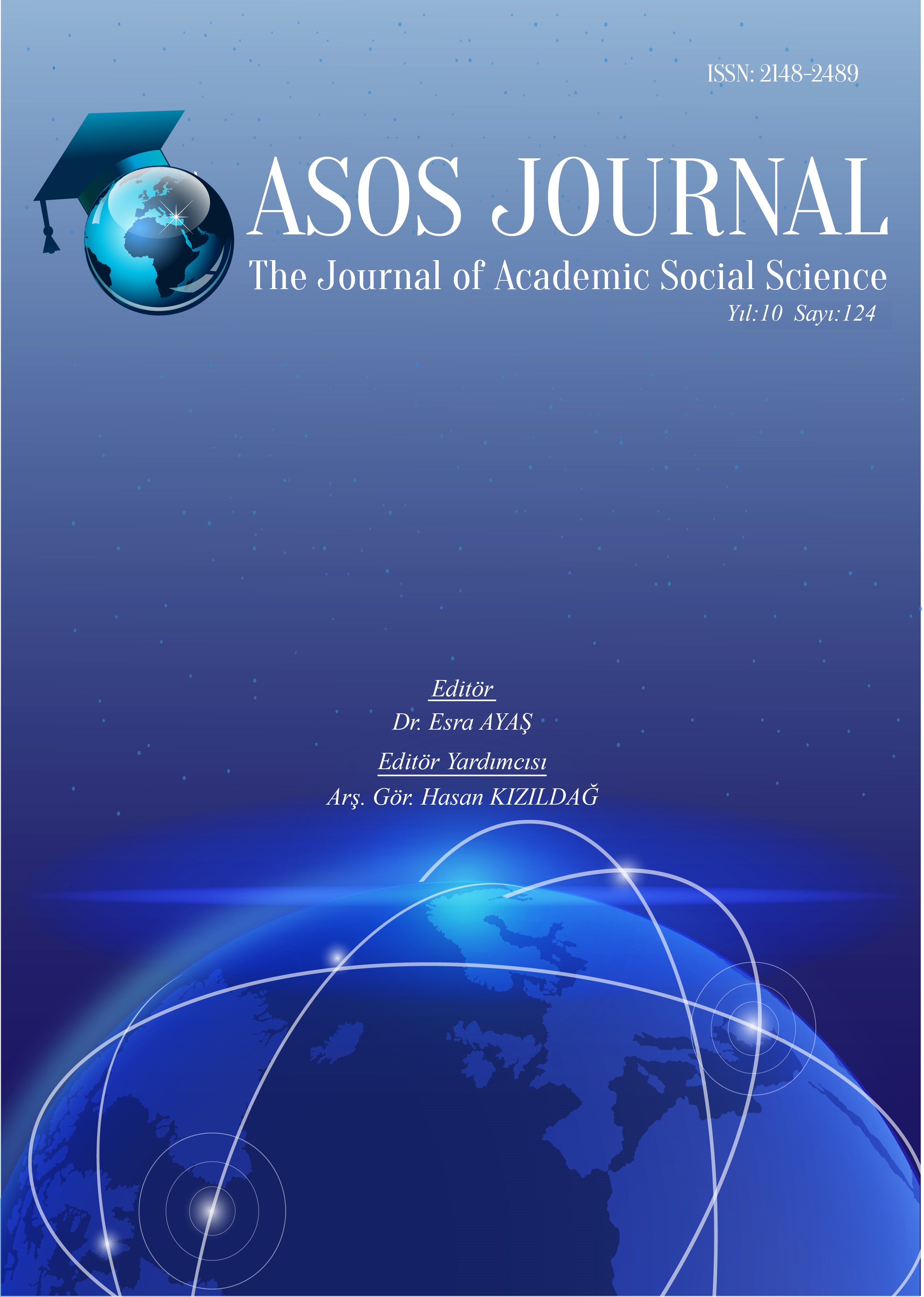7331 SAYILI KANUN İLE GETİRİLEN YENİLİKLER ÇERÇEVESİNDE CEZA MUHAKEMESİ HUKUKUNDA ADLİ KONTROL TEDBİRLERİNİN UYGULANMASI
Author :
Abstract
Bu çalışma, modern hukuk devletlerince kişi hak ve özgürlüklerini koruma çabaları kapsamında kabul edilen adli kontrol tedbirlerinin, Türk hukukunda da etkin bir şekilde uygulanmasının sağlanması için adli kontrol tedbiri hakkında hükümleri de içinde barındıran 7331 sayılı Kanun’un getirdiği düzenlemelerin etkilerini ortaya koymaya çalışmaktadır. Bilindiği üzere koruma tedbirleri içerisinde en ağır yaptırım olarak tutukluluğun sebep olduğu olumsuzlukların ortadan kaldırılabilmesi için, bu kuruma alternatif olarak getirilen adli kontrol tedbirleri sayesinde kişilerin temel hak ve özgürlüklerine en az zarar verecek tedbirlerin uygulanması ile aynı amaca ulaşılmaya çalışılmaktadır. Tüm bu koruma tedbirlerinin asıl amacı ise yargılamanın güvenliğini ve devamlılığını sağlamaktır. Bu sebeple şüpheli veya sanık hakkında hükmedilecek koruma tedbirine karar verilirken kişi hak ve özgürlüklerine en az zarar verecek olanı seçilmeye çalışılmalı; ancak ulaşılmak istenen amacın gereklerine aykırı bir karara da meydan verilmemelidir. Ancak yargı kararlarında ve doktrinde genel olarak katolog suçlar bakımından tutuklu yargılamanın esas olduğu gibi yanlış bir algı mevcuttur. Bu yanlış algının değişmesi, getirilen düzenlemeler ve son dönemde verilen AİHM kararları doğrultusunda zorunluluk haline gelmiştir. Burada öncelikle herhangi bir suç ayrımı yapılmaksızın şüpheli veya sanık hakkında mümkünse adli kontrol tedbirlerinin uygulanması; değilse de son çare olarak tutukluluğa karar verilmesi önem arz etmektedir. Haksız uygulanan koruma tedbirleri sebebiyle CMK madde 141 ve devamında düzenlemeler mevcut olmasına rağmen sınırlı olarak sayılan bu koruma tedbirleri arasında adli kontrol tedbirlerinin mevcut olmaması da büyük bir eksiklik olarak ortaya çıkmaktadır. Temelde her bir koruma tedbiri, kişi hak ve özgürlüklerini sınırlayıcı yükümlülükler getirmesine rağmen bunların arasında ayrım yapılması hukukun temel ilkerine uymayan bir durumdur.
Keywords
Abstract
This study tries to reveal the effects of the regulations brought by the Law No. 7331, which includes provisions on judicial control measures in order to ensure the effective implementation of judicial control measures, which are accepted within the scope of efforts to protect individual rights and freedoms by modern states of law, in Turkish law. is. As it is known, in order to eliminate the negativities caused by detention, which is the most severe sanction among the protection measures, the same aim is tried to be achieved by applying the measures that will least harm the fundamental rights and freedoms of the individuals, thanks to the judicial control measures brought as an alternative to this institution. The main purpose of all these protection measures is to ensure the security and continuity of the proceedings. For this reason, while deciding on the protective measure to be decided on the suspect or the accused, it should be tried to choose the one that will least harm the rights and freedoms of the person; however, a decision that is contrary to the requirements of the aim to be achieved should not be allowed. However, in judicial decisions and doctrine, there is a misconception that pre-trial detention is essential in terms of catalog crimes. The change of this misperception has become a necessity in line with the regulations introduced and the recent ECtHR decisions. Here, first of all, the implementation of judicial control measures, if possible, about the suspect or the accused without any discrimination; If not, it is important to decide on detention as a last resort. Despite the existence of regulations in CMK article 141 and the following due to unfairly applied protection measures, the absence of judicial control measures among these protection measures, which are considered as limited, also emerges as a major shortcoming. Basically, although each protection measure brings obligations that limit individual rights and freedoms, making a distinction between them is a situation that does not comply with the basic principles of law.
Keywords
- Bıçak, V. (2013). Suç Muhakemesi Hukuku (3. Baskı). Polis Akademisi Yayınları: Ankara.
- Bıçak, V. (2013). Suç Muhakemesi Hukuku (3. Baskı). Polis Akademisi Yayınları: Ankara.Centel, N. & Zafer, H. (2014). Ceza Muhakemesi Hukuku (11.Baskı). Beta Basım: İstanbul.Çakın, A. (2008). Kişi Özgürlüğü ve Güvenliği Açısından Adli Kontrol, Adalet Dergisi: Ankara.
- Hacıoğlu, B. C. (2005). 5271 Sayılı Ceza Muhakemesi Kanununda Tutuklama KorumaTedbirine Seçenek Olarak Düzenlenen Adli Kontrol Koruma Tedbiri Üzerine Bir İnceleme, Atatürk Üniversitesi Erzincan Hukuk Fakültesi Dergisi, 9(1-2), 167-192.
- Özbek, V. Ö. & Kanbur, M. N. & Doğan, K. & Bacaksız, P.& Tepe, İ. (2016). Ceza Muhakemesi Hukuku (8. Baskı).Seçkin Yayıncılık: Ankara.
- Özgüven, A. D. (2009). Ceza Muhakemesi Kanunu Çerçevesinde “Adli Kontrol”, Türkiye Barolar BirliğiDergisi, (81), 1-42.
- Öztürk, B. & Eker Kazancı, B. & Soyer Güleç, S. (2017).Ceza Muhakemesi Hukukunda Koruma Tedbirleri (2. Bası). Seçkin Yayıncılık: Ankara.
- Şahin, C. (2014). Ceza Muhakemesi Hukuku I (5. Baskı),Seçkin Yayınevi: Ankara.
- Tezcan, M. (2012). “Adli Kontrol”. Yayınlanmamış Doktora Tezi, Ankara Üniversitesi Sosyal Bilimler Enstitüsü.
- Yılmaz, İ. (2016). 5271 Sayılı Ceza Muhakemesi Kanunu'nda Adli Kontrol (1. Basım), Adalet Yayınevi: İstanbul.
- Resmî Gazete, 17 Aralık 2004, Sayı: 25673, Kanun No. 5271.
- Resmî Gazete, 14 Temmuz 2021, Sayı: 31541, Kanun No. 7331.





